“Flutes can be very punk”- An interview with Hannah Todt (Autor)
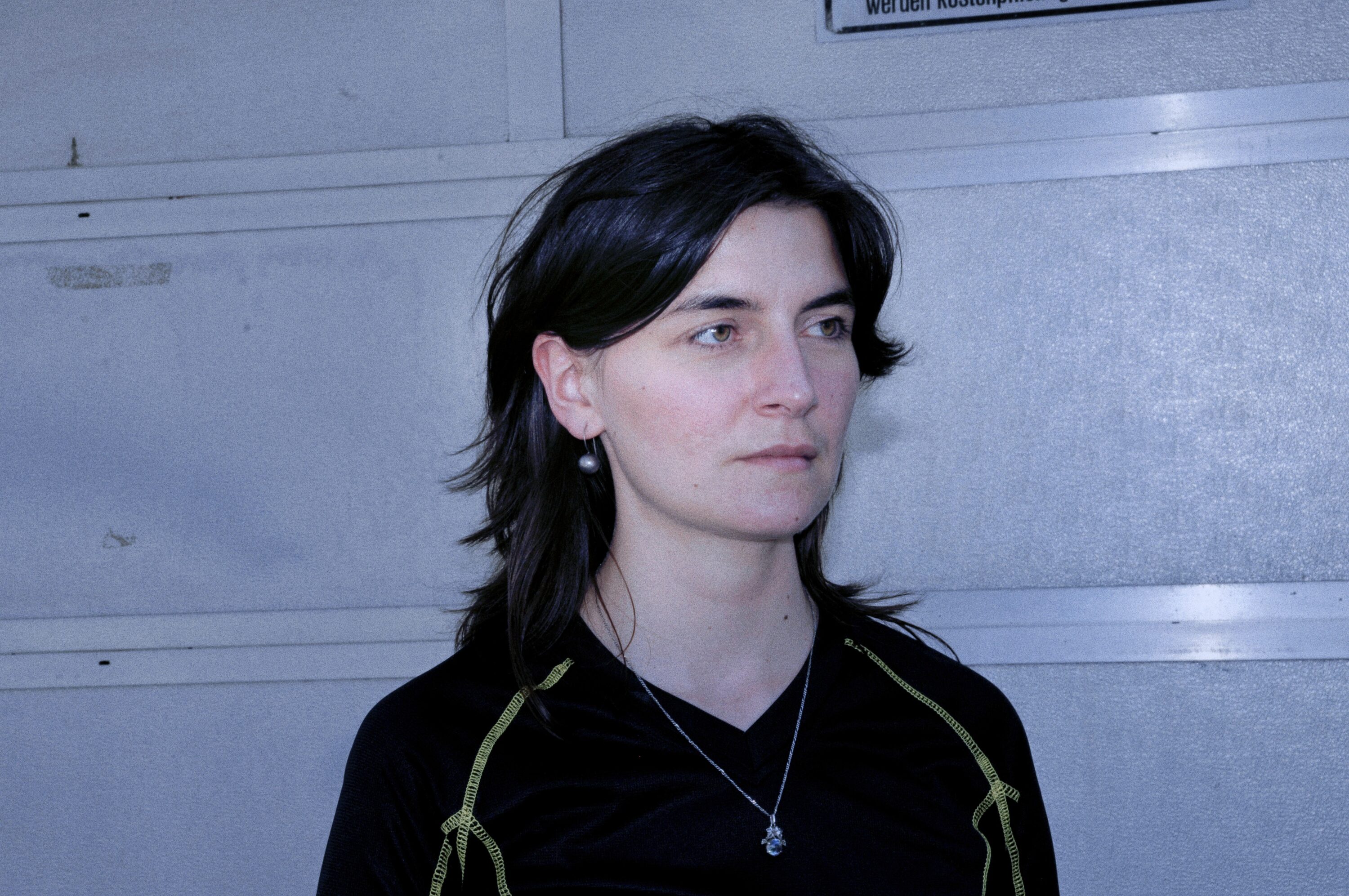
Autor will perform on Friday, 5. September at WUK Projektraum as part of Unsafe+Sounds Festival.
It’s hard to find a starting point because you have so many facets. Let’s maybe start where you’re based because you’re based in Brussels at the moment. And I know that you lived in Paris and I know that you lived in Vienna, but I don’t know actually where you’re born and what’s your trajectory.
Yeah, so I’m from Vienna actually. I was born and raised in Vienna, I went to school here and my family is still around. But somehow I always felt the need to go away even when I was in school still, I always wanted to go on an exchange programme. But there was no money for this back then and after graduating I wanted to actually do a volunteer year somewhere. But then I applied at the University of Fine Arts. But I was just 17 when I finished school. So I just applied, but then I really got taken at the Angewandte. So I never actually left. I was always somehow stuck in Vienna. And then the first chance that came up was Erasmus. So I went to Paris for 1,5 years And that’s also where I started to get more into music again. Also through the arts actually, because in art school i had easy access to a sound studio and that was very fruitful and opened much up for me. When I came back from Paris, I decided to finish studying pretty soon, and moved to Brussels after Covid. I knew the city from playing shows (at Le Chaff and Les Ateliers Claus), and I had always felt a very good vibe there.. So now I’m still in Brussels and made another master’s there in fine arts. But it was more of a pretext to move away.
The first musical project that I know from you is Gomme. That was founded in Paris?
Yeah, exactly, with my friend Betsy. We had a third band member, but she moved away. It was the first serious band. I felt like I had a place and we recorded and played shows, got a label and things like that. But my first release was when I was eight or nine years old. I had a band called No Smoking with three schoolmates – all girls. And later as a teenager, I had a band with my brother and his friends.
So you mentioned the art scene in Paris, but from which background came Gomme?
It was a funny coincidence, because Betsy was not studying art. Actually I was on a date with someone and we went to a dinner party, and she was also at the dinner, and I actually ended up talking more to her than to that date. And then a couple of months later I found out that she was looking for a drummer for her band and I told her that I know how to play the basics and if she wants we could try. So she recorded very simple demos of the songs that she wanted to play, so in the beginning I was more playing the songs that she had pre-written. And then it slowly turned into a project where we wrote songs together.
“knowledge production through playing”
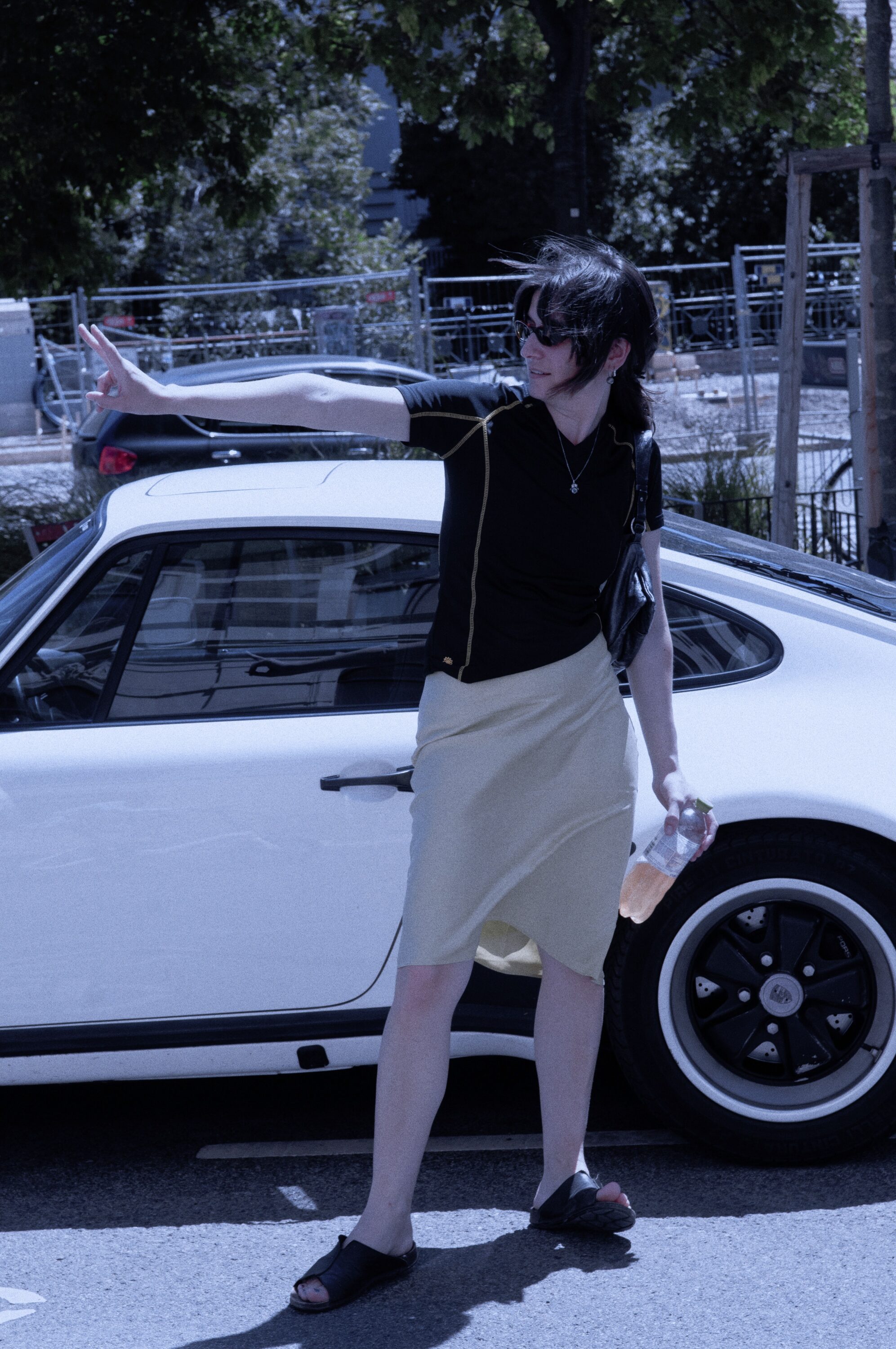
Would you say that you adapted to the style or did punk/post-punk already attract you before?
It definitely attracted me. I grew up with pop music actually, as a teenager I started to listen to more alternative, punk or folk rock stuff and I found out about so many things that I loved about punk and post-punk much later actually. So this was in the beginning of my 20s when I was in Paris. So Betsy actually introduced me to a lot and it was a lot learning by doing, like knowledge production through playing.
And then after you left Paris, what did happen?
We continued to play for a while. We even wrote another EP that we released in 2019. And I went back and forth quite a lot to Paris to practice or play tours in France. We also went to the US and played a west coast tour. Betsy is from the US and organized the tour completely on her own. It was crazy. So we continued for a while and then we stopped because of Covid actually.
But you were quite known in the scene?
I think one reason why we got a bit more popular, especially in the skate scene, is because Betsy is married to a pro skater. And then some of our songs were played in some clips from skateboard companies. That’s how we gained some popularity in the skate scene.
OK, so you said then COVID happened. What was your next musical steps then?
Yeah, well Autor started around that time. Actually it started a year before in 2019, when we were on tour with Bobby Would. We were six people. So we met through the Bobby Would project, but Angel and Dominik know each other since they are teenagers. After the EU tour with Bobby, we started Autor and continued until now. The drummer changed, but otherwise the formation has stayed the same.
And you’re the front singer of Autor, are you playing any instruments too?
I used to play the synthesizer, but somehow it was more a way of hiding behind something for me also. But then I gained more and more confidence just being there with the voice and being more present and so I thought okay, let’s just move it away. It became more of an obstacle.
Is there a punk scene in Vienna?
Yeah I think so. And more and more so. What Dominik and Raphi do with Urban Lurk for example is really important for the scene – organizing shows, releasing and supporting many local artists from very different genres actually. Also Johnny and Melanie with Lovehouse. I think this is very important for the community. I even remember Dominik once mentioning that people were grateful for this because for a long time there was not really a stable core of people who organize things and were kind of reliable.
Your 2nd release was put out via Urban Lurk. Your recent one on Contergan Punk. I never heard about them. Who’s behind Contergan?
It’s Marco Steiner. It’s not a label that has been actively releasing on a regular basis. He has a record shop next to Fortuna in Westbahnstraße. And he was very interested in releasing us. We had different options, but decided for a local label in the end. He also made a release of Rolltreppe.
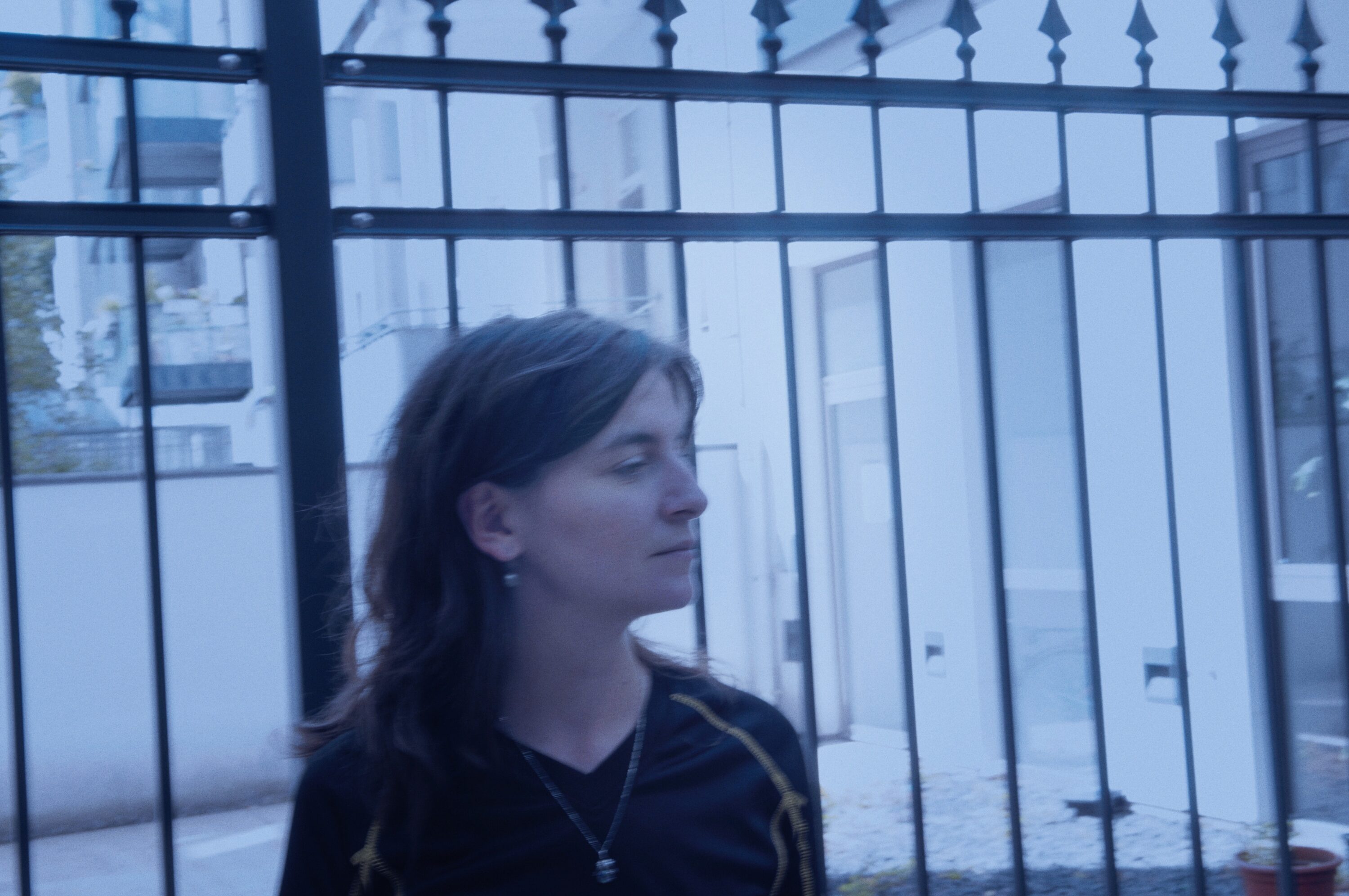
“I mostly feel comfortable in collectives”
You’re working interdisciplinary, so the different disciplines – art, music, text – are inspiring each other. But can it also be blocking?
Well, it’s sometimes very present that it can become an obstacle. But I also see it as a huge privilege to be able to move and navigate in between these places of creative expression. In any case I think in the fine arts and also in music I mostly feel comfortable in collectives. I realized that when I tried to do something solo. I mean I have been doing solo music for a long time, but I never released it properly. And also when I do art projects, I always find myself back in some kind of collective processes or in some collaborations. Even if I work alone, and I create an installation, it has to be played by many different performers. So I think I need this connection to people, no matter in which field I’m moving.
There’s such a different connection that you create with the audience, if it’s in a musical context, or in a fine arts context. I studied fine arts, but I never exhibited a lot or wanted to sign with a gallery, which also was a subconscious choice, I guess. But for a long time I though this is what I had to do. But yeah, there’s these different worlds that you can find yourself in.
I am sometimes so confused by what I do. I talked to the stepfather of a friend of mine once, who’s a quite known architect and also played in an Austrian band in the 80s. He told me that from very early on he always knew that he was never going to be like the most professional and well-known and famous architect, or the most famous musician, but it was also a deliberate choice and an expression of freedom, and you’re just balancing it out, and not putting all your eggs in one basket. It makes it harder also, because people want to be able to put you in a box.
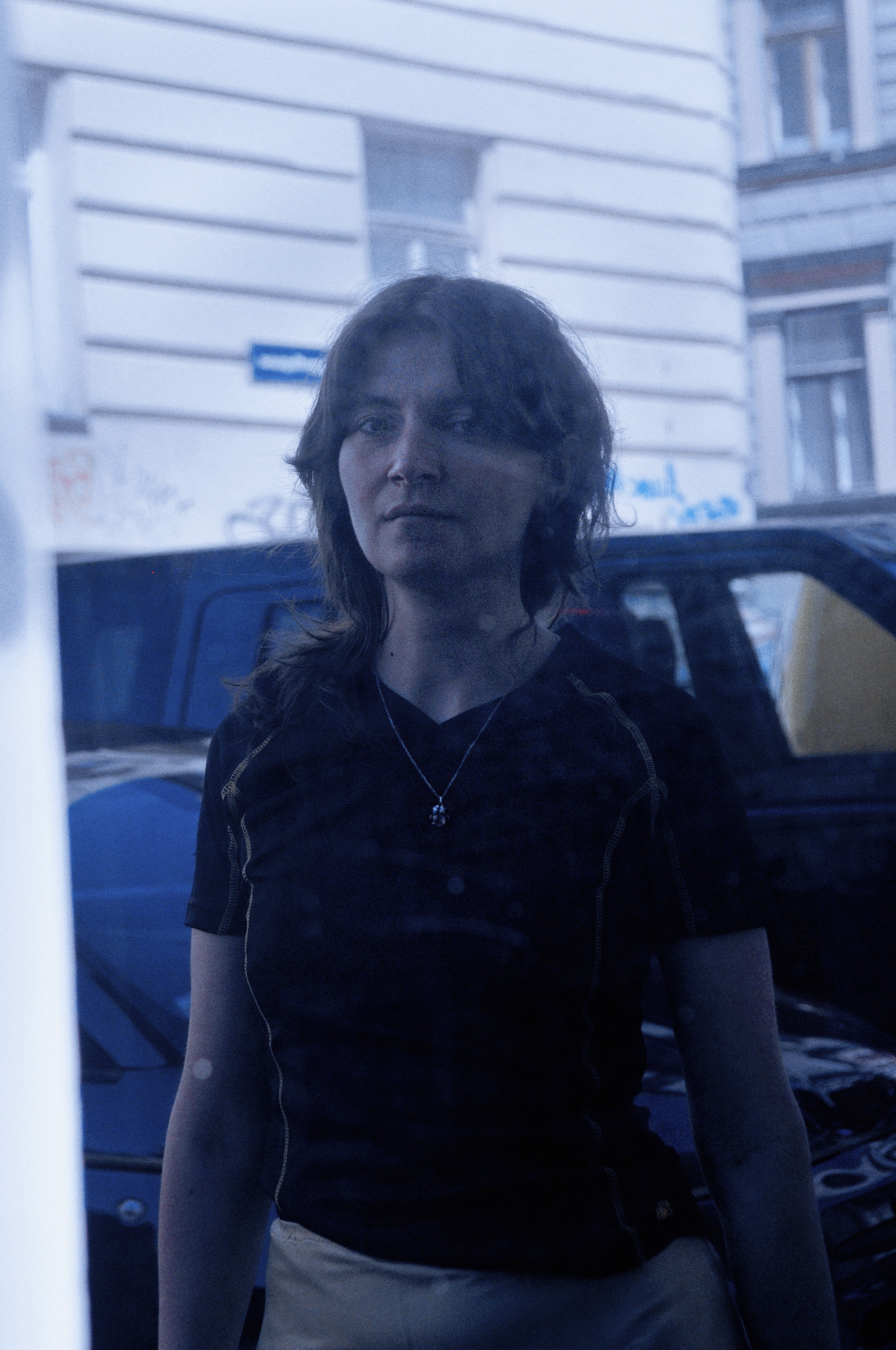
“to make them coexist”
Yeah, that’s true. Actually though I couldn’t imagine how you would create this very authentic music that is very anti-establishment and confrontative, and then on the other hand be a functioning part of the art market, selling yourself. It’s a very narcissistic arena.
It is really a question of how much you want or can sell yourself and still stay true to what you do. With Gomme, we once got asked to play for New Balance at Paris Fashion Week, and that was during the time when some people posted videos online burning their NB sneakers, cause NB supported Trump for his first run for presidency. So they offered us a lot of money, cause, of course they wanted to use us to whitewash their image, and we denied.
Fortunately I never got pressured by my family. I mean it’s hard to actually define what i’m doing to them, when they ask me what do you do the whole day? What does your day look like? It’s so different every day! There’s so many different things and I have to make them coexist, but I also love it, and I think I would get extremely bored otherwise.
And also in the punk scene, I don’t feel like I’m a punk, honestly, and I don’t even know what that means. There’s people who look like punks and there’s people who act like punks.
And where are you situated?
I think I don’t look like a punk, but I have some stolen goods in my bag (laughs).
So there is no artistic medium that you don’t work in right? Even your lyrics are very much a text based art form, I feel. You’re very playful with language.
Yeah, I like these double meanings and that it’s up to your own interpretation. That the lyrics are fragmented and you have to create your own links between the phrases, that there is always a little gap that you need to fill in your brain.
So you’re active in many different disciplines. You’re even an instrument builder, as with your flute installations. Maybe you can talk about them? They’re quite fascinating, super minimalist also.
I think that these objects also contain a lot of double meanings. Sometimes they are sculptures, but they can also be activated through sound. I think the first fascination that I got for flutes came from the fact that they can be shaped so differently, up to the point where you don’t even realize anymore that it’s a flute.
Like when you play a glass bottle for example, it also becomes a flute. Once you start researching on them, there’s so many different cultures in the world that use some sort of flute. There are so many different shapes and sizes and forms and materials. And I really liked that they’re so shapeable in their aesthetics. And the fact that they are easily accessible – most of the flutes are quite easy to play, so you don’t have to be a specialist to play a first note. Kind of like in punk music – flutes can be very punk. And there’s also a strong connection to the human body somehow that is also functioning like a flute: There’s air coming in, and your body becomes this resonating body, and then there’s the voice.
The voice works like a flute. And I like this abstraction.
But also the way you are activating it, is special, cause you’re turning it into a collective instrument.
Yeah, there’s this collectively playable flute that I made out of steel tubes, and on each end point there was only one hole that I drilled. I like this idea of fragmenting an instrument into many pieces, but still perceiving it as a unit, so if you play it together it’s like playing one instrument.
“To just be in a place together”

This collective work for sure resonates in your band work too, and I’m wondering how you’re composing a song? Cause with Autor the music and the lyrics are relating so much to each other I feel. There is some synchronicity happening, energywise. So I’m wondering what comes first: lyrics or music?
So the optimal version is when we’re sharing a rehearsal space, all four of us, and just play around, try out stuff. A lot of my work with lyrics comes with the songwriting process. So during the band rehearsals, I actually don’t say words, but try out sounds, then only later, I’m reflecting, and ask myself okay, what is actually happening in my life, or what is it that I am I thinking of at the moment? And this is how I get the lyrics usually. It’s a lot about Lautmalerei too. Sometimes during the jams, I’d sing a bit of English and then I’d translate it back into German. That’s why it sometimes sounds rough.
Unfortunately we don’t have a lot of rehearsal time together. For the second release we didn’t write all together and I feel like you can hear that. But for the new release we were really lucky to be in Presshouse for a week at Paul (Ebhart). That was great because we wrote a lot of songs there over the course of one week. We already had some sketches to work with, and then during this one week we structured them and added my voice and so it was more of an organic process.
But for me that’s definitely the best way to write. To just be in a place together, to have a shared space to work together.
How can I imagine an Autor show to look like? Is there a mosh pit in the first row? How’s the energy in the space?
So what I’m very proud of is that during shows, I see more and more young non-cis guys wearing Autor T-shirts, singing along the lyrics in the front rows. That happened quite a lot on tour which I enjoyed so much. And then sometimes there is a mosh pit happening.
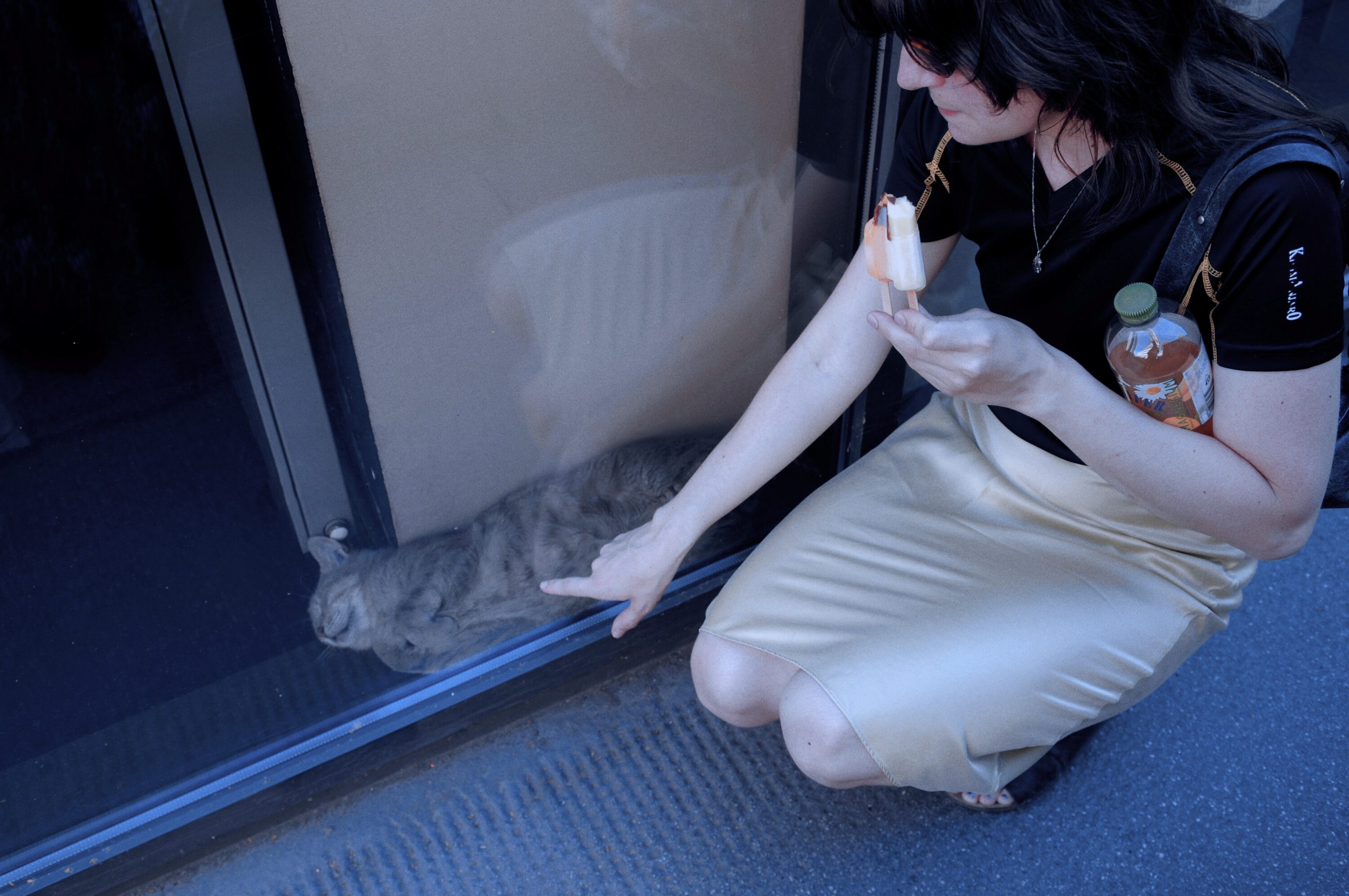
As front-singer you are super energetic and I’m wondering if this always feels authentic, because in a way you always have to function no matter how you’re really feeling in that moment. So do you have some kind of persona that gets activated in a way?
That’s a good question. The topic of authenticity is very difficult, cause every scene has a certain kind of behavior that is expected somehow, you know, like stage diving – because I never did and I never will stage dive (laughs). Then there’s people who tell me that it looks like I’m rapping. Also my performance depends on the size of the stage and the length of my cable, cause if it’s long enough I’ll enter the crowd.
The scene has always been very male dominated. Is that still the case?
Well it could be a lot worse I think. At least when I play concerts. But if we’re for example playing a show and there is a headliner act that is a more stereotypical male punk band, it would also attract a certain audience for sure.
I feel that I might attract a different audience also, because I don’t really fit into a certain genre. So there’s people from the art scene coming to our shows as well. It’s just also part of who I am.
When I was checking the photographs that Marija took of you, I was thinking about Pipilotti Rist. Then all these other strong female artist-musicians came to my mind: Kim Gordon, Gudrun Gut, Chicks on Speed. Did you ever have some sort of role model?
There’s a lot of interesting femme artists/musicians that are inspiring. For me it’s Laurie Anderson. She’s just a magician. I saw her perform in Brussels once, and it’s incredible how present she is in her performance. It’s her energy. And she was always very experimental and also never tried to fit in. It shows that she feels very free somehow.

That’s also one thing that I noticed about your work – your freedom of expression. It’s graspable. How do music and the fine art scene differ from each other? In music you work much more with energies.
I wouldn’t want to choose between them, but I think that music has so many ways of how it is consumed that I find so much more appealing than in the fine arts. Like it’s a democratic medium. And there’s not only one owner of an album that you buy for 5000 euros and hang it on the wall. But everybody can buy it and we all listen to it and we all can consume it. In the arts it’s different, that’s maybe also one reason why I move even more now into performative arts. Like I’d rather make objects that I can play with.
I also feel like there’s much more immediacy in the way that music is perceived than in the fine arts.
Do you have any reference points for the band? Are you ever recommending to each other to check out releases or so?
I mean the way I’m singing I don’t think it is really influenced by something specific, I never thought about what I wanted to sound like. Gomme once covered “Geheimnis” by Xmal Deutschland, where I was singing and everybody loved it so much… I get sometimes referenced to their singer.
And yes, in Autor we often send each other music, also during our recording process, to think about a specific vibe or sound that we like.
So what are you listening to personally?
In Belgium there’s so many great labels that constantly release so much good music. So I’m always on bandcamp checking out labels like stroom.tv, Kraak or Futura Resistenza. So you discover something new every week. For me it’s mostly through labels that I discover new music, or if I go to shows. For example last week, I was at a great concert at Recyclart, where Devon Rexi and FrontPageLeslie were playing, that was super cool.
Let’s return to the idea of you playing solo, because there actually are a few tracks where you were playing solo. It’s idiosyncratic, very eccentric pieces, and I feel that especially in Belgium, you’d easily find a label for this sort of music.
Hmm… I wouldn’t say it’s like shyness or lack of self-consciousness, but I’m an extreme perfectionist I think that I never was able to dedicate enough time to it. But it’s a top one priority on my invisible priority list, written in transparent ink.
But I’m building up a music studio in Brussels with a couple of friends at the moment, and it will get a proper studio space. I feel like I have a fridge full of half open stuff.
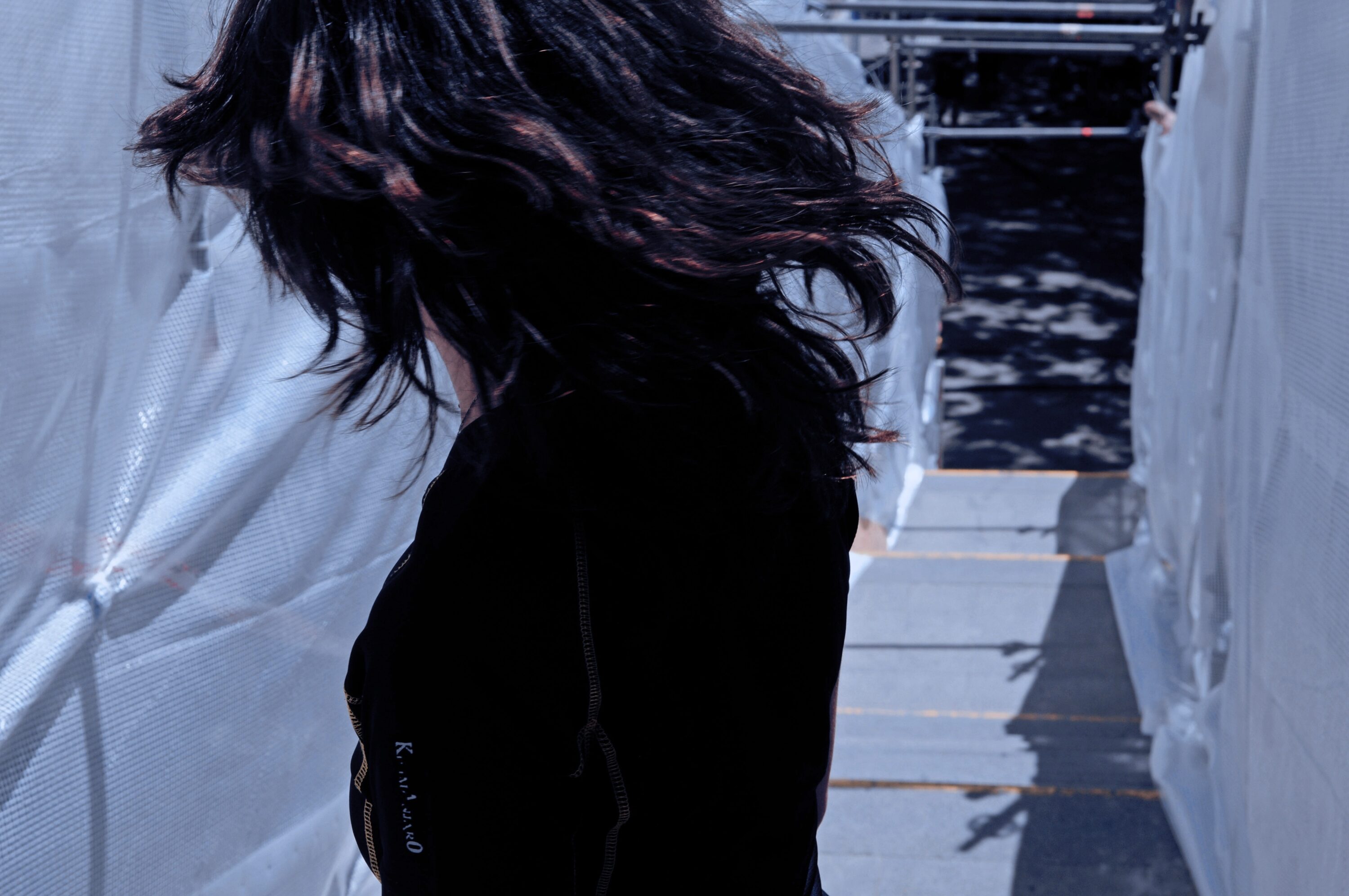
And what’s your upcoming plans?
First we will make a performance at Popfest with conte potuto, and we go to HochSommer Festival after that. Then I go back to Brussels and then I will start a project with Yoh Morishita, a choreographer and dancer. We got a residency together in Japan, but I’m not sure if I can go. It’s a financial question, and I’m still waiting for a funding. Then we (Autor) are all very excited about the concert at Unsafe+Sounds.
Maybe you can also add a few sentences on the collective, conte potuto?
So we’re an artist collective based in Vienna. I only joined them a year ago, but it exists since 2017. Very often we make installations that are played with performatively and are open for community. We come from different backgrounds and work with food, music, sculpture, and so on.
Are you planning to come back to Vienna?
I don’t know. I mean I’m officially still based in Austria and I am here quite often and when I’m in Vienna everything is so nice and everybody’s around and I know how to do what and who to meet and where to go and I ask myself why am I not just here? But it also feels oppressive how smooth it is. When I go back to Brussels, it’s dirty and chaotic, public transport is shit, but all that makes people so much more relaxed. It’s easier to find spaces of freedom in this chaos, especially creatively it’s just a very special environment.
Thanks much!
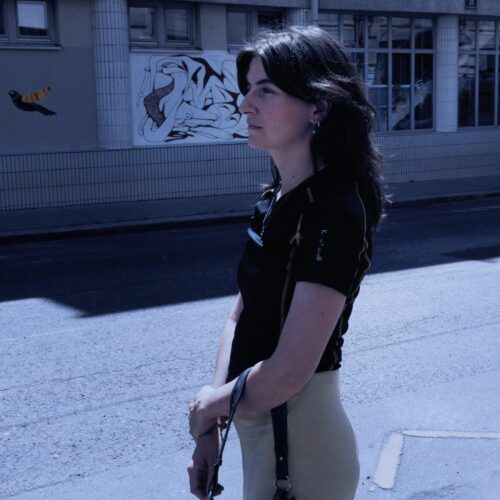
Hannah Todt
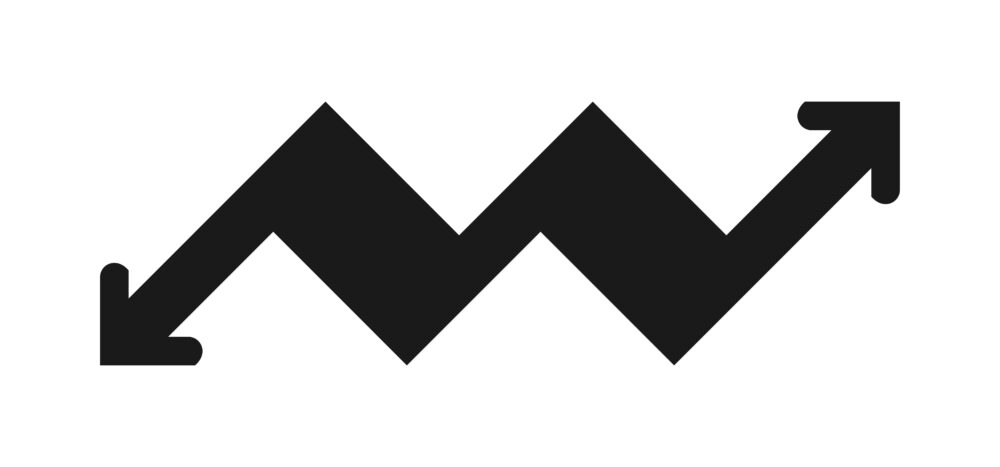
This article is brought to you by Struma+Iodine as part of the EM GUIDE project – an initiative dedicated to empowering independent music magazines and strengthen the underground music scene in Europe. Read more about the project at emgui.de
Funded by the European Union. Views and opinions expressed are however those of the author(s) only and do not necessarily reflect those of the European Union or the European Education and Culture Executive Agency (EACEA). Neither the European Union nor EACEA can be held responsible for them.